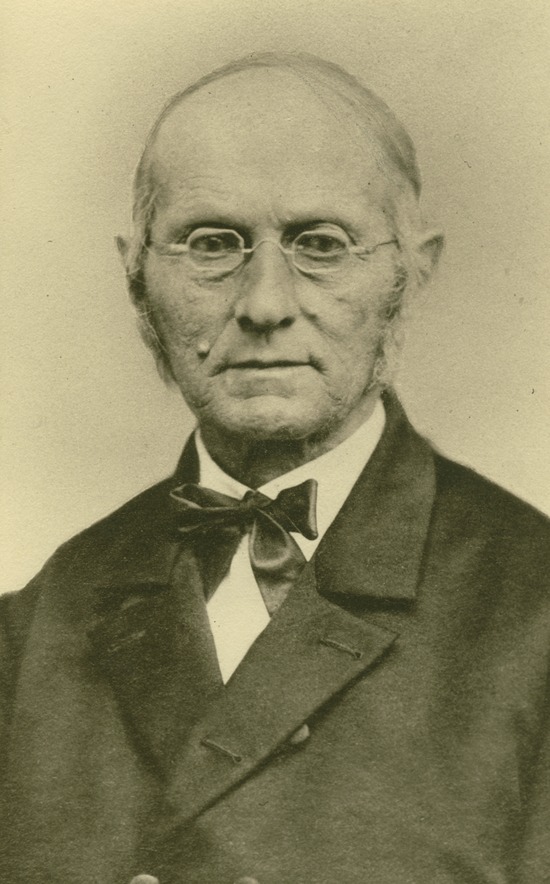The Seventh-day Adventist Church has historically discouraged the use of alcohol and tobacco. Even before the church started in 1863, its leaders were realizing the negative effects of these substances.
Today, church members still typically avoid alcohol and tobacco as part of their efforts to uphold biblical principles and a desire to care for their health. They recognize that these substances—though not sinful in and of themselves—can create unhealthy dependency, affect physical and mental health, and hurt those we love the most.
You might wonder, though, what’s the big deal? Why would most Adventists skip out on a relaxing glass of wine every once in a while, especially since the Bible sometimes makes positive references to it?
And these are questions worth looking into. Here, we’ll share some of the experiences and principles that have shaped the choices of Adventists on this topic.
You’ll learn:
- What the Adventist Church teaches about alcohol and tobacco
- Why Adventists discourage the use of these substances
What does the Adventist Church teach about alcohol and tobacco?

Photo by Cristian Guerrero on Unsplash
The Seventh-day Adventist Church encourages its members to avoid alcoholic beverages and tobacco. This comes from a desire for us to have contentment in our lives—focusing on Jesus Christ and His loving character, and not having to turn to things that could harm that experience.
All things considered, this isn’t all that different from the stance of many other Christian churches as a whole. But it does tend to be more woven into what Adventists proactively teach as biblical lifestyle principles.
Our Fundamental Belief on Christian behavior puts it this way:
“We are called to be a godly people who think, feel, and act in harmony with biblical principles in all aspects of personal and social life. For the Spirit to recreate in us the character of our Lord we involve ourselves only in those things that will produce Christlike purity, health, and joy in our lives.”
Today, so much evidence points to the adverse health effects of alcohol and tobacco.1 Because we desire to be good stewards of the bodies God gave us, we try to steer clear of things that can hurt our physical—and consequently mental and spiritual—health.
Here’s a little more from the Fundamental Belief we just quoted:
“Because our bodies are the temples of the Holy Spirit, we are to care for them intelligently…. Since alcoholic beverages, tobacco, and the irresponsible use of drugs and narcotics are harmful to our bodies, we are to abstain from them as well. Instead, we are to engage in whatever brings our thoughts and bodies into the discipline of Christ, who desires our wholesomeness, joy, and goodness.”
Of course, the church doesn’t (and shouldn’t!) make these decisions for its members. It’s a personal conviction that each individual must come to.
So let’s examine the factors that play into these convictions.
Why do Adventists discourage the use of alcohol and tobacco?
From as early as the late 1840s, this burgeoning community of Christians had been learning what the Bible says more specifically about caring for our bodies and minds.
If they are temples for the Holy Spirit, it makes sense to treat them as such (1 Corinthians 3:16-17; 6:19-20). We are called to honor God with our bodies (1 Corinthians 6:20) and to offer them in service to God as “living sacrifices” (Romans 12:1, ESV) and “instruments of righteousness” (Romans 6:13, ESV).
And several verses in the New Testament focused on the principle of self-control, which is especially relevant when considering substances that can be highly addictive (1 Corinthians 9:25-27; Galatians 5:23; 1 Thessalonians 5:6, 8; 1 Peter 4:7).
Adventists recognized that the Bible doesn’t directly prohibit alcohol use or address tobacco. But as they studied all these principles of health, they saw the connection to those behaviors.
Something else was also spurring their convictions: the temperance movement.
This American movement of the 1800s was a response to changing trends in tavern culture and regulations, prices of various beverages, and availability of stronger liquors.2
Several temperance groups formed, many spearheaded by churches, groups of ministers, or concerned wives who had a front-row seat to the many ways frequent alcohol consumption was affecting their husbands. Aside from physical health issues, it was causing families to crumble. It was becoming more common for husbands to come home drunk, and many were making poor decisions that affected family relationships and finances.3
Adventists also saw how the use of alcohol hurt not just the immediate users but also their families. And they wholeheartedly supported the temperance movement.
The Adventist church’s involvement in temperance movements

“Courtesy of the Ellen G. White Estate, Inc.”
The temperance movement first became popular in America in the 1820s and 1830s. After a while, its momentum dwindled, and it didn’t revive with full force until later in the 18th century. But it had already impacted early Adventists.4
One Adventist in particular, Joseph Bates, organized a temperance society called “the Fairhaven Society.” And as a captain of a ship, he made the very unusual decision to forbid drinking on his ships at a time when drinking was part of sailor culture.5
Though the temperance movement quieted down for some time during the mid-1800s, Adventists, from the beginning, saw both alcohol and tobacco as “destructive to life, family, and spirituality.”6
Ellen White, a leader in the Adventist Church who also demonstrated the gift of prophecy, received inspiration from God that emphasized the dangers of these substances. She referred to them in her writings as “stimulants.”
One of the first written messages of counsel (1848) was about the addictive nature of tobacco.7 As she and other Adventist leaders spoke up about the way tobacco “hindered spiritual growth,” Adventists in the 1850s began to take a stronger stance against it.8
When the temperance movement gathered speed again with the Woman’s Christian Temperance Union forming in 1874, many Adventist leaders supported it.9 In 1879, they formed their own organization: the American Health and Temperance Association.
The temperance movement at large focused on pushing prohibition laws and getting people to sign pledges that they wouldn’t drink alcohol.
However, Ellen White, through the insight God gave her, taught that temperance was a broader issue:
“Intemperance is not limited to the use of intoxicating liquors; it has a broader meaning, and includes the hurtful indulgence of any appetite or passion.”10
People could be intemperate in more areas than just alcohol, tobacco, or drug use. Overworking or overeating, though more socially acceptable, could hurt overall health too.
(In fact, overwork was a major issue in the early Adventist Church that led to the illness and early deaths of some of its key leaders, like James White.)
Of course, working and eating are necessary actions that should form a balanced part of someone’s life. That kind of balance, though, is much harder to achieve with substances that are by nature addictive and more difficult to consume in moderation.
That’s why Ellen White divided temperance into two categories: (1) avoiding hurtful things entirely, and (2) using healthful things in balance.11
For many people, drinking alcohol was—and still is—commonly involved in being social, having fun at a party, or feeling a sense of belonging. Bars have long been places of community. Adventists recognized the importance of social enjoyment and community while at the same time wanting to avoid the negative side effects of alcohol. The message of temperance was always about “prevention, not by attacking bad habits, but by presenting ‘something better.’”12
Something better than the health struggles, which were all too common in a time when so little was understood about medicine. In the mid-to-late 1800s, most people didn’t really know what alcohol or cigarettes could do to their bodies. In fact, some doctors still used tobacco treatments for various ailments, such as poisonous bites, hysteria, pain, and wounds, despite the suspicions people were starting to have about its safety.13
For Adventists to suggest avoiding these substances altogether was ahead of the times. Let’s look at some of the health principles that shaped this conviction and how science is confirming it today.
The desire to care for health

Photo by Jonathan Borba
Physical, mental, and spiritual health—wholeness in every area of life—is an important value in the Adventist Church. It’s based on passages like 1 Corinthians 6:19-20, which speaks about the body being the temple (or dwelling place) of the Holy Spirit. We seek to care for our bodies because they are the way through which we connect with Him and impact the world around us.
When we engage in behaviors that are addictive or harmful, it affects every aspect of our lives—our health, our relationships, our work, our finances.
It shouldn’t surprise us, then, that our relational and loving God would also want us to avoid these behaviors. His greatest desire is for us to experience life to the fullest (John 10:10) while making ourselves able to connect with Him in the deepest way possible and best love the people He’s placed us in community with.
And today’s research is helping us understand how engaging in addictive substances, or going about any activities with an unbalanced approach, can deeply impact our lives.
But health risks are especially high with smoking tobacco, which causes nearly one-fifth (480,000) of deaths in the United States each year.14 The CDC lists all the following as effects of smoking:15
- Cancer
- Heart disease
- Stroke
- Lung disease
- Diabetes
- Chronic obstructive pulmonary disease (COPD)
- Emphysema
- Chronic bronchitis
It also increases the risk of:16
- Tuberculosis
- Eye diseases
- Autoimmune conditions
What’s more, secondhand smoke can be just as harmful. Smoking affects not only the individual who smokes, but those around them as well.17
But what about alcohol?
It’s true that many people drink socially, enjoying an occasional glass of wine with a meal. It doesn’t seem to hurt them, does it?
The statistics, though, tell a different story.
Increasing amounts of research are showing that alcohol, no matter how little is consumed, is harmful. An article published by the World Health Organization at the beginning of 2023 stated, “No level of alcohol consumption is safe for our health.”18
A recent New York Times article says something similar:
“When experts talk about the dire health consequences linked to excessive alcohol use, people often assume that it’s directed at individuals who have an alcohol use disorder. But the health risks from drinking can come from moderate consumption as well.”19
These risks include numerous kinds of cancer, including head and neck, esophageal, liver, breast, and colorectal cancers.20
The more immediate impact is concerning, too. A drink or two can “impair balance, coordination, impulse control, memory, and decision-making.”21
An example of this is the accidents that occur due to “buzzed” driving—involving drivers whose blood alcohol content (BAC) was still under the legal limit in the United States.22
The way that alcohol can so quickly compromise the ability to think and reason is a major consideration for Adventists—and one reason we choose to stay away from it.
Biblical principles
The Bible doesn’t directly prohibit the use of either tobacco or alcohol, though this lack of prohibition doesn’t automatically mean that they’re okay for us. Ultimately, the Bible isn’t meant to be a rulebook with dos and don’ts. Rather, it teaches us how to think and to use principles that can apply to every aspect of our lives—even to things not directly mentioned in the Bible.
When it comes to tobacco and smoking, the Bible doesn’t mention them since they didn’t even exist in society at the time. But it does say a lot about glorifying God, making wise choices, being a helpful presence in the community, and caring for our bodies as temples of the Holy Spirit. By this logic, we avoid smoking, which has so clearly been shown to have negative effects on our bodies and on those around us.
Alcohol is a trickier topic, though. After all, the Bible does mention wine. And it doesn’t say to avoid it completely.
So does that mean it’s not a problem?
To answer this question, we need to consider a few points.
Description vs. prescription in the Bible
As mentioned, the term wine comes up throughout the Bible. Another term is strong drink.
We have to keep in mind, though, that just because alcohol’s use is described in the Bible doesn’t mean that God prescribed it. The Bible describes many unideal things that God allowed because He was seeking to teach His people other lessons at the time.
It mentions divorce, polygamy, and slavery—all practices that aren’t what God ultimately wants for us. However, He temporarily allowed them because His people needed to learn other more important lessons before they were ready to understand these issues. “It is helpful to keep in mind that God does not necessarily endorse all that He permits.”23
Distinction between new wine and old wine
Though this distinction isn’t everywhere, we do find it in a few passages. Both Hosea 9:2 and Haggai 1:11 use the phrase “new wine,” and Isaiah 65:8 talks about the blessing being in the “new wine,” which is “found in the cluster.” We can assume this is referring to freshly pressed grape juice rather than alcoholic wine, which had to go through an aging process once it was pressed.
Jesus Himself distinguished between new wine and old wine in one of his parables (Matthew 9:17; Mark 2:22).
This indicates that not all uses of wine in the Bible refer to alcohol.
In fact, the wine commonly drunk in Palestine was “the simple juice of the grape,” according to Bible commentator Albert Barnes.
He emphasizes the importance of understanding the meaning of wine in the original context of the times:
“We use the word ‘wine’ now to denote the kind of liquid which passes under that name in this country – always containing a considerable portion of alcohol not only the alcohol produced by fermentation, but alcohol ‘added’ to keep it or make it stronger. But we have no right to take that sense of the word, and go with it to the interpretation of the Scriptures. We should endeavor to place ourselves in the exact circumstances of those times, ascertain precisely what idea the word would convey to those who used it then, and apply that sense to the word in the interpretation of the Bible.”24
Warnings against drunkenness
Regardless of whether the Bible condones alcohol or not, it is clear about the dangers of drunkenness.
Proverbs 23:29-35 describes the condition of someone who is drunk:
“Who has woe? Who has sorrow? Who has conflicts? Who has complaints? Who has wounds for no reason? Who has red eyes? Those who linger over wine; those who go looking for mixed wine…. In the end it bites like a snake and stings like a viper. Your eyes will see strange things, and you will say absurd things. You’ll be like someone sleeping out at sea or lying down on the top of a ship’s mast. ‘They struck me, but I feel no pain! They beat me, but I didn’t know it! When will I wake up? I’ll look for another drink’” (CSB).
Ephesians 5:18 warns:
“And don’t get drunk with wine, which leads to reckless living, but be filled by the Spirit” (CSB).
And in one other instance, the apostle Paul instructed Timothy to choose a church leader who was not “a drunkard” and a deacon who was not “addicted to much wine” (1 Timothy 3:3, 8, ESV).
Based on these passages, some might see alcohol as acceptable—as long as they’re not getting drunk.
However, the risk of alcohol use disorder is also a consideration. A glass here or there can turn into more over time, and just a few slip-ups can turn into binge drinking, especially if certain risk factors are in place.25
Influence on others

Photo by Christine Jou on Unsplash
Another factor that plays into the question of alcohol use is personal example and influence on others. Notice this verse written by the apostle Paul:
“It is a good thing not to eat meat, or drink wine, or do anything that makes your brother or sister stumble” (Romans 14:21, CSB).
To be clear, this verse isn’t specifically talking about whether it is acceptable to drink alcohol or not. Rather, it occurs in the context of eating and drinking things offered to idols—a common practice in Roman society during the first century.
But this has a practical lesson too.
Paul had explained that eating food sacrificed to idols wasn’t wrong in and of itself because Christians weren’t seeking to worship those idols. They knew the idols weren’t real.
The bigger issue was whether their actions could cause someone else to stumble—as in, perhaps someone would see them eating these foods and assume that Christians thought it was okay to worship idols. Or it could stir up fear or resentment from those who are having trouble giving up old superstitions or traditions.
The overarching principle is this: An activity may not be wrong for one individual or group to do, but it may be best to avoid it because of how it’ll negatively influence those around them.
For example, you may be able to have a glass of wine once a week with dinner, but someone who follows your influence may not be able to. They may struggle to limit themselves and end up with a real problem that could have otherwise been avoided.
In the United States, 29,544,000 people struggle with alcohol use disorder (AUD). That amounts to 10.6% of the population, or 1 in 10 people. And the related problems are many—from underage drinking to abuse to drinking while driving.
Each individual has to decide whether they will support or encourage something that can lead to these consequences.
Effect on the mind
As we’ve noted, the Bible doesn’t directly forbid wine, or what it calls “strong drink.” However, it does forbid it for certain groups of people, such as priests and kings (Leviticus 10:8-10; Numbers 6; Judges 13-14). Notice Proverbs 31:4-5:
“It is not for kings, O Lemuel, it is not for kings to drink wine, nor for princes intoxicating drink; lest they drink and forget the law, and pervert the justice of all the afflicted” (NKJV).
Why were these groups forbidden to drink wine?
Wine or intoxicating drinks could cause them to “forget the law” and “pervert…justice.” Isaiah 28:7 echoes this by saying that those who drink wine and strong drink “stumble in giving judgment.”
Many Adventists see these counsels as applicable to anyone who wants to serve God or be a good example for others. They look to passages like Revelation 1:6, which says Jesus has made His followers “kings and priests to His God and Father” (Revelation 1:6, NKJV). What’s more, the Christian life is about a transformation of our minds (Romans 12:2; Hebrews 8:10), and we don’t want to do anything to prevent that.
This leads many of us to avoid substances that could blur our thinking and judgment or prevent us from wholeheartedly following God.
A choice for greater health and wholeness
Alcohol and smoking may not be sinful in and of themselves, but their potential effects and the way that using them can influence others are major reasons the Seventh-day Adventist Church discourages their use.
Our ultimate desire is to promote activities that can lead to greater health and wholeness in Jesus Christ.
And for most Adventists, avoiding alcohol and tobacco is part of seeking physical, mental, and spiritual growth, so we can best enjoy and make use of the life God gives each of us.
Related Articles
- “Smoking & Tobacco: Health Effects of Cigarette Smoking,” Centers for Disease Control and Prevention; “Alcohol and Public Health—Alcohol Use and Your Health,” Centers for Disease Control and Prevention. [↵]
- Aaron, Paul, and Musto, David. “Temperance and Prohibition in America: A Historical Overview,” a paper published in Alcohol and Public Policy: Beyond the Shadow of Prohibition. National Academies Press (1981). https://www.ncbi.nlm.nih.gov/books/NBK216421/. [↵]
- “Women and the Temperance Movement,” Digital Public Library of America. https://dp.la/primary-source-sets/women-and-the-temperance-movement. [↵]
- Robinson, Doris, The Story of Our Health Message, pp. 39-42. [↵]
- Ibid., pp. 55-56. [↵]
- “Chemical Use, Abuse, and Dependency,” Seventh-day Adventist Church. [↵]
- Robinson, pp. 65-66. [↵]
- ibid. [↵]
- Ibid., p. 224. [↵]
- White, Ellen G., The Signs of the Times, November 17, 1890. [↵]
- White, Ellen G., Patriarchs and Prophets, p. 562. [↵]
- Fortin, Denis; Moon, Jerry, The Ellen G. White Encyclopedia, Kindle Edition, p. 2484. [↵]
- Charlton, Anne, “Medicinal Uses of Tobacco in History,” Journal of the Royal Society of Medicine. [↵]
- “Smoking and Tobacco: Health Effects of Cigarette Smoking,” Centers for Disease Control and Prevention. [↵]
- ibid. [↵]
- ibid. [↵]
- “Health Problems Caused by Secondhand Smoke,” Centers for Disease Control and Prevention. [↵]
- “No Level of Alcohol Consumption Is Safe for Our Health,” World Health Organization. [↵]
- Smith, Dana, “Even a Little Alcohol Can Harm Your Health,” The New York Times. [↵]
- ibid. [↵]
- “Alcohol’s Health Effects: What You Need to Know,” NIH MedlinePlus Magazine. [↵]
- “Buzzed Driving Is Drunk Driving,” National Highway Traffic Safety Administration. [↵]
- Seventh-day Adventists Believe, 2nd edition, p. 315. [↵]
- Barnes, Albert, “Commentary on John 2,” Barnes’ Notes on the Whole Bible. [↵]
- “Alcohol Use Disorder,” Mayo Clinic. [↵]
More Answers
Evangelism
Evangelism is simply sharing the truths of the Bible with someone else. And Adventists are all into it.
Everything You Need to Know About an Adventist Church Potluck
Every so often, usually on a schedule ranging from once a week to once a month to once a quarter, an Adventist church will have “fellowship dinners,” often casually referred to as potlucks.
The Seventh-day Adventist Hymnal
The Seventh-day Adventist Hymnal is a songbook used worldwide by many Adventist congregations during their worship services. Since its publication in 1985, it has helped foster praise to God while reminding church members of our mission and drawing them closer to Jesus.
What Are Seventh-Day Adventist Sermons Like?
In nearly every Seventh-day Adventist Church, the sermon is the focal point of the main service—similar to many Protestant Christian denominations. It is a time of biblical instruction by the pastor, who shares what they’ve been studying in the Bible and preparing over the previous week.
Who Are Adventists
The Seventh-day Adventist Church—“Adventists” for short—is a Christian denomination of ordinary people who seek to follow Jesus and live out His mission in this world. Established in 1863, we hold to the Protestant principle of sola scriptura, which means the Bible guides everything we do.
Why is the Great Controversy in my mailbox?
Every year, households across North America receive free copies of a 150-year-old book, The Great Controversy. Millions more are shared around the world.
How do Adventists choose what to eat?
Food blogs overwhelm the internet; food fads are all the rage; and copycat and healthy versions of food are the subject of many a get-together.











